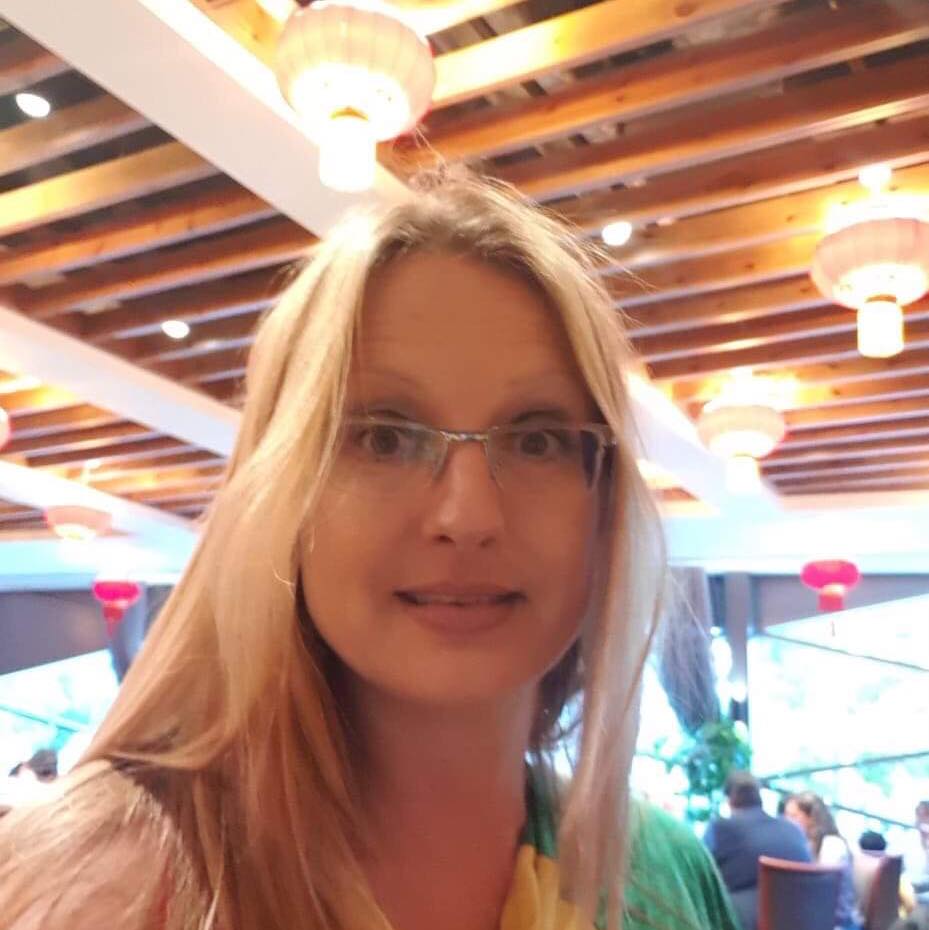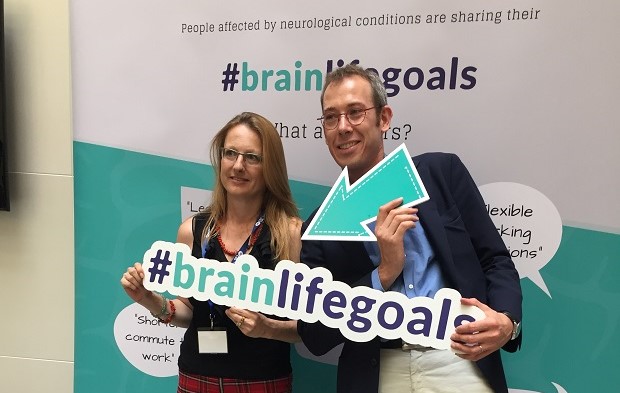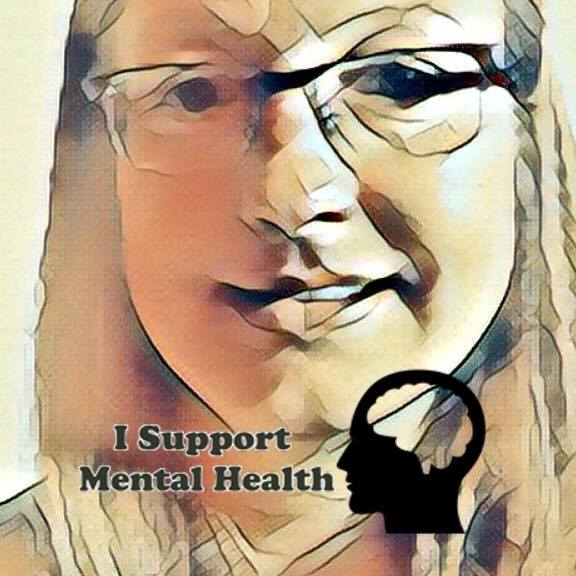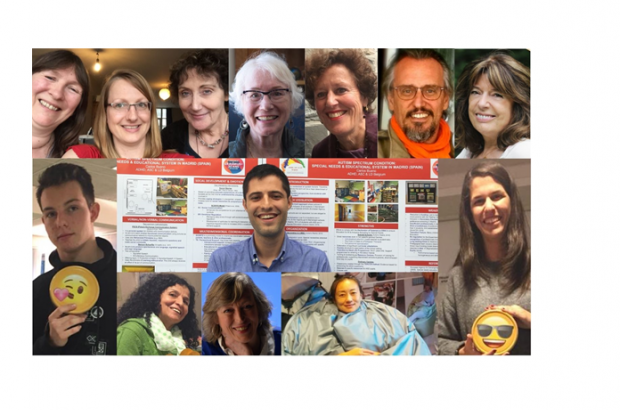- Daily & Weekly newsletters
- Buy & download The Bulletin
- Comment on our articles
Community life: Supporting English-language families affected by ADHD
Why did you become involved with ADHD organisations?
My son was diagnosed at the age of seven with ADHD in South Africa where I was born. We moved to France in 2011 and couldn’t find support or the educational support that I knew he needed. Then we arrived in Belgium and I googled ADHD Belgium and found this wonderful organisation that I now volunteer for. I learned more about ADHD in Girls and Women from Dr Ellen Littman (USA expert for ADHD in Girls & Women) when attending my first ADHD conference in Belgium in 2017. Since then, chapters in my life now make more sense. There were things that I didn’t understand and that other people misunderstood. I faced may challenges and uncomfortable situations due to not being diagnosed or treated, including anxiety and depression. It’s so alarming to know that the support for my son from the school in South Africa does not really exist in Europe. It’s a struggle to get proper information in Europe when we do not understand the national language, or to find an English-speaking doctor for ADHD.
What support groups are you involved in?
I volunteer for two English-language nonprofit organisations ADHD, ASC & LD Belgium, as well as ADHD Europe. The former was founded in 2001 by a parent with the aim of helping English-speaking families and the association was legalised in 2008. Today, we run three support groups, Adults Neurodiversity, Parents & Teachers, and Knowing Me, Knowing You: ADHD Support Group for Women in addition to our awareness-raising activities for women with ADHD on social media.

We are a member-based organisation and we don’t turn anyone away. There are many international families who arrive in Belgium who need support and information. Prior to Covid-19, we held face to face events, workshops, and yearly conferences for parents, families and teachers (video from the 2012 conference in partnership with our counterparts TDAH Belgique and Centrum Zitzel).
Our organisation reaches out to the European and International schools in Belgium and works closely with ADHD Europe, GAMIAN Europe, Belgian Brain Council. We also attend various meetings with Mental Health Europe, European Brain Council and European Federation of Neurological Associations.
How is ADHD usually diagnosed and what treatment is generally offered?
An early diagnosis can lead to a better academic, social, cognitive and psychological functioning. ADHD is neurodevelopmental condition and there’s a genetic link with 74% heritability for ADHD. There are many guidelines for getting a diagnosis and treatment in Belgium, which you can read about here.
What is the link between ADHD and autism and dyslexia?
ADHD often presents with coexisting conditions, which we call comorbidities. They may include autism, dyslexia, dyspraxia, ODD (Oppositional defiant disorder) and other learning differences. It’s six times more likely for someone with ADHD to develop mental health issues such as depression, anxiety or OCD (Obsessive-Compulsive Disorder) etc.
Why is it necessary to offer a support group for women?
There’s a misconception that ADHD only affects boys as they are usually diagnosed around the age of seven, while girls often only show symptoms around 13 or 14 after puberty sets in. Girls do not behave in the same way as boys. If they’re not jumping on the table they’re not thought to be hyperactive and have ADHD. But girls have ADHD as often as boys; they are talkative, inattentive and have internalised behavior, which affects their self-esteem and social interactions with friends. In some countries, the ratio for diagnosis for boys compared to girls is six to one.
Many women reach adulthood without having an ADHD diagnosis and this comes with some risk. Often they have been diagnosed with depression and/or anxiety while the underlying ADHD is missed. This affects their functioning in higher education and adulthood. Their symptoms are different to those of men. Many women are prone to Premenstrual dysphoric disorder (PMDD) due to severe hormonal imbalances that affect their mood, sleep and appetite. During the menopause, it’s a similar story. Low self-esteem and perfectionism is common in high functioning women who have undiagnosed ADHD. They may do well at school and university, but they often suffer from burnout. This is why we have a website in Europe just for women and offering free online support groups for women with ADHD; the information they need is different and it is easier for them to open up about their symptoms when in the company of women who share their experiences too.

What are the main challenges for people living with from ADHD and how much misconception and stigma surround it?
One of the challenges is the severity of the internalised stigma with ADHD and mental health problems, including discrimination in the workplace, burnout and taking sick leave to feel better. Discrimination also exists with one’s friends and family. Mental health problems affect all family relationships and during Covid-19, there’s been an increase in depression and anxiety for children, adolescents and adults affected by ADHD. In 2018, I gave a presentation on World Brain Day about Stigma, Discrimination and Isolation with ADHD during the #brainlifegoals campaign (pictured above).
Another challenge is for families is getting access to diagnosis and treatment. We recommend services in other languages as well as English. ADHD Europe did a survey about the state of access to diagnosis and treatment across Europe. It doesn’t just affect the Belgian population, it’s a European and international problem. The whole ADHD community is advocating for better diagnosis treatment and education for people living with ADHD. There is a lack of knowledge in the society and healthcare about ADHD. We endeavour to raise awareness of evidence-based information written by experts in the field of ADHD. It’s important for everyone to recognise that ADHD is an early onset neurodevelopment condition.

Do you have a message for anyone who thinks that they or a family member might be affected by ADHD or a learning condition?
I would like to encourage people to contact us. Some people are too scared to talk about their struggles and we offer a safe place where people can share experiences, emotions, get advice and realise that they are similar people in the same situation. I became an ADHD advocate because I really believe that everyone with ADHD and their families should experience wellbeing, fully participate in society, achieve their full potential and be treated with respect without discrimination. Due to the injustice surrounding ADHD and my own challenges, I really want to help others. There is nothing worse than not being able to deal with the situation and slipping into depression, for example. I have been personally healing since 2017 and learning more about ADHD, so I want to share this information.



















Comments
The article correctly points out how ADHD in girls is massively underdiagnosed. I would argue that this is also true for many conditions and learning disorders regardless of sex. Teachers and parents receive precious little education about mental health. How can they be expected to spot problems early?
Teachers have little incentive to worry about the kids who are not reaching their potential but are not jumping on tables. It is not difficult to imagine that kids who through no fault of their own have problems with concentration, memory, prioritization and planning skills turn into chronic underachievers who battle with frustration and depression.
I can remember reading a short story 4 times the night before an English test. When the English teacher later commented that my test paper showed that I had had no clue about the story line I was devastated. It seemed easier to let him and the entire class assume that I hadn’t done any work than to say “sorry, I can read stuff over and over again but it doesn’t stick in my head”.
It took me nearly 50 years to realise that this was a typical characteristic of non-hyperactive ADHD and go seek help.
So how to avoid something similar to this happening to your child?
We need to educate ourselves and our kids about mental and physical health.
Kids are forced to learn a huge amount of stuff that they will never need after school. When was the last time you needed to solve a simultaneous equation or calculate the volume of a cylinder? Advanced mathematics can be taught in third-level to the very few students who might need it. How many people die without ever having been confronted with a mental health issue in themselves, friends or family? How well are we prepared for such issues?
Kids don’t have to become psychiatrists but we do need to teach them how to detect any issues that they suspect that they may have and make it possible for them to seek help. If we need to throw out 30% of the mathematics curriculum to make time for this then that would be fine by me (despite my background in science and technology). This revolution in education may not come in our lifetimes so instead of waiting any longer we should already begin by educating ourselves and sharing that knowledge with our peers and our kids.
We all deserve it and it is a win-win for everyone.
Thank you for highlighting this excellent organisation. I agree that much more support, awareness and diagnostic services are urgently needed for ADHD but also for autism and other neurodevelopment conditions.
Quietguy: I agree with you completely!